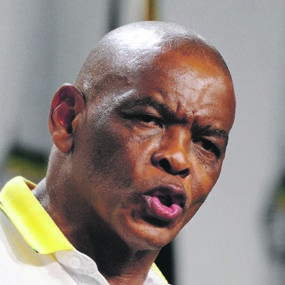
A video recently shared by an SABC news journalist sparked outrage as it shows Ace Magashule, ANC secretary-general, inspecting a woman’s fridge and giving her R400 after finding no food in it.
In the lead-up to the general elections, these kind of door-to-door visits by political parties are considered electioneering.
Much of the focus from some political parties was on his contribution of R400 to the woman after he saw that there was no food in the house, but his inspection and broadcasting of it cannot be ignored.
Read: Ace Magashule's dodgy dealings exposed
Although it is unclear whether Magashule asked the woman for her consent to inspect the contents of her fridge off camera, he definitely did not ask on camera.
Regardless, subjecting a person to the indignity of accepting R400 for food in front of cameras is a perverse encroachment.
His action gives deep insight into just how much privacy invasions, especially in low-income households and communities where people are often portrayed as helpless and desperate, are normalised during election periods.
Social media is now a central part of how people communicate, so it is no surprise that it has become a tool that political parties routinely use to share their door-to-door activities.
Potential voters are shown intimate portraits of people’s lives through photos and videos of politicians entering their homes and objectifying and exploiting their living conditions, either to promise change or to show just how much the governing party has failed them.
Privacy is a fundamental right that is deeply intertwined with self-determination, autonomy and, most importantly, dignity.
It should be preserved at all times, including during election cycles.
Even if consent is given, the coercive power imbalance in the situation is skewed. Many people may feel unable to say no to a politician’s request, particularly in the low-income areas where politicians seem to feel entitled to access people’s private lives.
Of course, privacy invasions during electioneering are not limited to the use of social media.
The DA has come under fire many times for harassing potential voters with unsolicited phone calls and text messages.
Previously, the DA offered no way to opt out of receiving their communications.
Although it has since corrected this, the option to not be contacted by them requires that you provide them with a very sensitive piece of private information – an identity number – despite there being no valid reason to require this.
The party reportedly admitted to buying people’s data, but it did not disclose what kind of data they have and whether they make it available to third parties.
It’s not far-fetched to assume they have more than cellphone numbers and email addresses to avoid sending repeated calls and SMSes to the same people.
Yet they expect us to trust them with our ID numbers.
Overall, privacy invasions around electioneering are normalised, from non-consensual videos to data mining. This must change.
The Protection of Private Information (Popi) Act, which will prevent misuse of personal information, was an important step towards change.
Almost six years later, however, the law is still not being enforced because of delays in getting the office of the information regulator, the new government watchdog, operational.
Enforcing Popi and updating the electoral code of conduct to include issues of privacy has to be a top priority.
This will enable the Independent Electoral Committee (IEC) to sanction political parties for failures to respect the privacy and dignity of people.
Also, the IEC could include a clause dedicated to ensuring that the suffering of human beings is not used as a mere prop in their campaigning.
South Africa needs to prioritise the equitable enjoyment of privacy.
This will require opposition to how stories about certain lives, especially the most vulnerable, are told and put an end to the practice of people being used as objects for political agendas.
We must ensure that political parties are not exempt from these rules.
Moeti has a long background in civic activism and has over the years worked at the intersection of governance, communication and citizen action. She is an inaugural Obama Foundation Fellow and a 2017 Aspen New Voices Fellow. Follow her on Twitter at @Kmoeti




 Publications
Publications
 Partners
Partners









